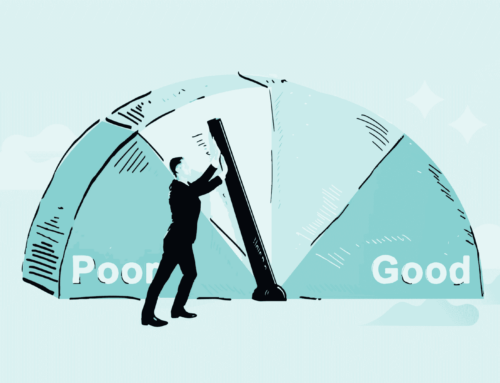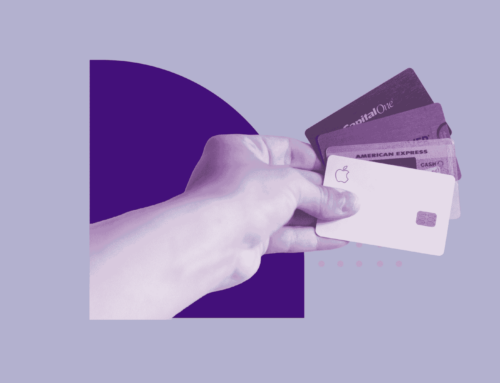Over one million Canadians are out of work due to COVID-19
We are currently seeing record-breaking job loss across Canada now as a result of the COVID-19 pandemic. According to Statistics Canada, the Canadian economy lost more than one million jobs, pushing the unemployment rate to 7.8 percent. In February, 9.2 million Canadians had paid work before the coronavirus hit Canada with full force. Fast-forward one month, barely 18 million people have jobs. As Statistics Canada further expands, these figures may not be completely accurate. Several Canadians may not have been made officially unemployed. Another 1.3 million Canadians worked no paid hours because of lockdowns but technically still considered themselves to have jobs. It’s clear our economy is suffering, but how do we look after our credit health?
With these figure’s higher than economists had predicted, the Canadian government has implemented a wage subsidiary to help ensure Canadians are not left without income through this unprecedented time. The government has introduced the Canada Emergency Response Benefit (CERB), which is the federal program for people who have lost their jobs due to COVID-19, providing temporary income support. This allows Canadians to receive up to $500 a week, for up to 16-weeks. This allows Canadians who have lost their job to still maintain an income for this period, in the hope of jobs soon becoming available.
At the moment, it’s clear Canadians don’t have much disposable income. But it’s important to try and maintain a strict budget, watch your spending and look after your credit score. This will help you stay on track when the economy begins to reach normality, and ensure you’re not left with a poor credit score. There are many small changes you can make to your day-to-day spending in order to ensure your credit score is maintained. It’s important for you to stay in contact with your creditors, ensure excellent communication with your bank and keeping close watch of your credit report.
Let’s discover some simple ways you can maintain a positive credit score in these uncertain times.
Take inventory of your debts and expenses
When in a situation like the current pandemic with limited income, we should take note of our debts and expenses. It’s important to take stock of what you pay out each month in order to evaluate exactly what is a priority and what’s not. Here we will note payments and the dates we need to pay by. This can include the likes of home or car insurance, credit card debts, loan repayments, mortgage, rent, or other house utilities. It might be a good idea to double-check how much we really need all three subscriptions to Netflix, Amazon Prime and Disney Plus. Basically, weigh up essentials and luxuries.
If you make sure you have your priorities right and know exactly what debts and expenses you must pay; you can make sure you’re not missing a payment. When you miss a payment, it can negatively impact your score so by following this step you are preventing long-term damage to your credit.
Create a new budget
We recently discussed why you should budget, and we will always say that budgeting is vital when it comes to your credit score. Since you’ve now weighed up which bills are most important, it’s now time to create a new budget. If you have an emergency fund, now can be a time to use it for bills or other expenses. It’s also important to ensure you create a new budget if you’re using your CERB payment as your income. This will help you to decipher how much disposable income you have and allow you to allocate this extra income in paying off some more of your bills.
If you create a fool-proof budget and stick to it, you can allow yourself to spend some spare cash on preparing for your financial future. If you’re interested in boosting your credit score, Score-Up will help you maintain and positive score in these uncertain times and guide you to great credit. Find out how it works here.
Contact your creditors
It’s important to stay in constant communication with your home or motor insurance providers, loan or mortgage lenders and utility bill providers. The sooner you talk to these companies, the sooner you’ll be able to discover your options. Many companies are providing payment deferrals upon request due to the current pandemic, which will help you avoid going to collections or seeing the damage done to your credit score. Give them a call and discuss your options.
Learn more about your credit score and how to improve it
In times where you credit health is at risk, it’s important to educate yourself on different ways you can improve your score. it’s important to keep up to date on what your credit score is by regularly checking your report. Remember, a credit score check is not bad for your credit.
It’s important to take time to check that all information on your credit report is accurate. From here, dispute anything that doesn’t seem right. If you keep on top of things, it saves you from going to “the point of no return” and being left with a damaged score. Don’t forget, you can also make a note on your credit report to say you’ve been impacted by COVID-19. You can make a statement on your credit report with Equifax and Transunion.
We want to help you with your credit health and education! Check out our many different types of credit education sources to help you improve your credit literacy here.
About Marble Financial Inc. (CSE: MRBL; OTCQB: MRBLF) We are a group of forward-thinking financial technology experts that fully understand the benefits and drawbacks of credit in Canada. Marble helps Canadians increasing their credit to gain access to prime lending. Through our industry-leading proprietary technology solutions Fast- Track, Score-Up, and Credit-Meds. Our proven strategy guides our customers back to a meaningful credit score, 50% quicker than traditional methods. Since 2016, Marble is proud to have empowered thousands of Canadians to a positive financial future. We continue to establish ourselves as leaders in financial wellness.






